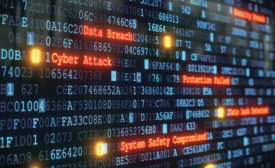Web Exclusive Stories
Once finalized, US entities can use the new Standard Contractual Clauses to legally transfer data out of the EEA when combined with appropriate supplementary measures.
Read More
Sign-up to receive top management & result-driven techniques in the industry.
Join over 20,000+ industry leaders who receive our premium content.
SIGN UP TODAY!Copyright ©2025. All Rights Reserved BNP Media.
Design, CMS, Hosting & Web Development :: ePublishing













